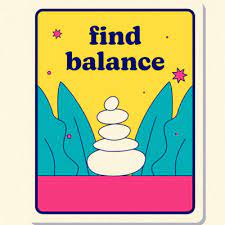Navigating the Fine Line in Relationships are complex and beautiful journeys that require balance, understanding, and self-awareness. One aspect that often goes unnoticed is codependency, Navigating the Fine Line in Relationships a behavioral condition where one’s self-worth and actions are excessively tied to their partner. Let’s explore how to identify and address codependency, ensuring your relationship remains healthy and empowering.
Understanding Codependency: More Than Just a Buzzword
The term ‘codependency’ often gets thrown around in discussions about relationships. But what does it actually mean? Codependency is a pattern of behavior where one person’s sense of purpose and worth is overly dependent on their partner. This can lead to an unhealthy balance in the relationship, where one’s needs and desires are constantly sidelined.
Signs You Might Be in a Codependent Relationship
- Overuse of “We” Over “I”
- Losing Individuality: It’s great to think as a team, but if you’re always using “we” instead of “I,” you might be losing your individuality. This can lead to a blurred sense of self where your preferences and desires become secondary to the relationship.
- “Let Me Check With My Partner First”
- Seeking Constant Approval: While it’s respectful to consider your partner’s views, needing their Navigating the Fine Line in Relationships approval for every decision might be a sign of codependency. This could indicate a deep-rooted fear of disapproval or a lack of confidence in your own choices.
- “We’re Just the Same, You and I”
- Losing Personal Identity: Believing that you and your partner are identical in every way can lead to unrealistic expectations and disappointment. It’s vital to appreciate and embrace the differences that make each of you unique.
- “I Don’t Know What I’d Do Without You”
- Fear of Being Alone: Expressing dependency to this extent may seem romantic, but it can be a red flag. It’s crucial to maintain a sense of self-sufficiency and resilience, independent of your relationship.
- “You Make Me Feel Complete”
- Seeking Wholeness in Another: This statement, while seemingly romantic, implies that you’re incomplete on your own. True fulfillment and wholeness come from within, not from a partner.
- “I Can’t Be Happy if You’re Not”
- Emotional Dependence: Your emotional well-being should not be entirely dependent on your partner’s mood or state of mind. It’s important to cultivate your own sources of happiness and fulfillment.
- “I’m Nothing Without You”
- Undermining Self-Worth: This phrase can be harmful to your self-esteem. Your worth and identity are intrinsic and not defined by your relationship.
- “You’re My Everything”
- All Eggs in One Basket: While it’s wonderful to value your partner highly, considering them as your ‘everything’ can lead to neglecting other vital aspects of your life, like friends, hobbies, and personal growth.
- “I Always Want to Be Where You Are”
- Loss of Independence: Constantly wanting to be with your partner might seem endearing, but it’s essential to have your own space and independence for a healthy relationship.
- “I’d Do Anything for You”
- Sacrificing Personal Boundaries: Being supportive is different from losing sight of your own needs and boundaries. It’s crucial to maintain a healthy balance between supporting your partner and taking care of yourself.
Building a Healthier Relationship
- Communication: Open and honest communication is key to addressing codependent behaviors. Discuss your feelings, fears, and desires with your partner. Websites like Relate offer great tips on improving communication in relationships.
- Personal Development: Focus on personal growth and hobbies outside of your relationship. Websites like MindBodyGreen provide resources for self-improvement and personal wellness.
- Professional Help: Sometimes, professional counseling can help in understanding and breaking codependent patterns. Resources like Psychology Today can help find a suitable therapist.
- Self-Care: Prioritize self-care and self-love. Remember, you are an individual first, and a partner second. Websites like Tiny Buddha offer excellent advice on self-care and self-love.
- Healthy Boundaries: Establish healthy boundaries in your relationship. This is key to maintaining your individuality and sense of self-worth.
Conclusion: Navigating the Fine Line in Relationships
It’s natural to deeply care about your partner’s well-being and to want to be a supportive, loving companion. However, it’s also important to maintain your own
identity, interests, and emotional health. Recognizing and addressing codependent tendencies Navigating the Fine Line in Relationships is crucial for the health and longevity of your relationship.
Love should empower you, make you feel secure, and yet free. Remember, the goal is to complement each other’s lives, not to become so entwined that you lose sight of who you are individually. 🌟
If you’ve seen yourself in any of these signs, don’t be disheartened. Recognizing these patterns is the first step towards fostering a more balanced and fulfilling relationship. Navigating the Fine Line in Relationships Embrace the journey of self-discovery and relationship growth, and you’ll find a deeper, more meaningful connection awaits. 💕
